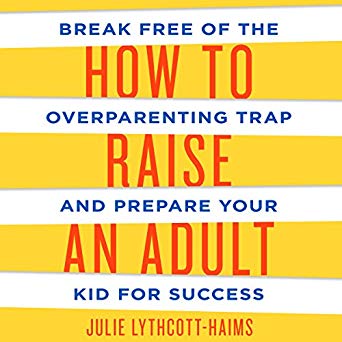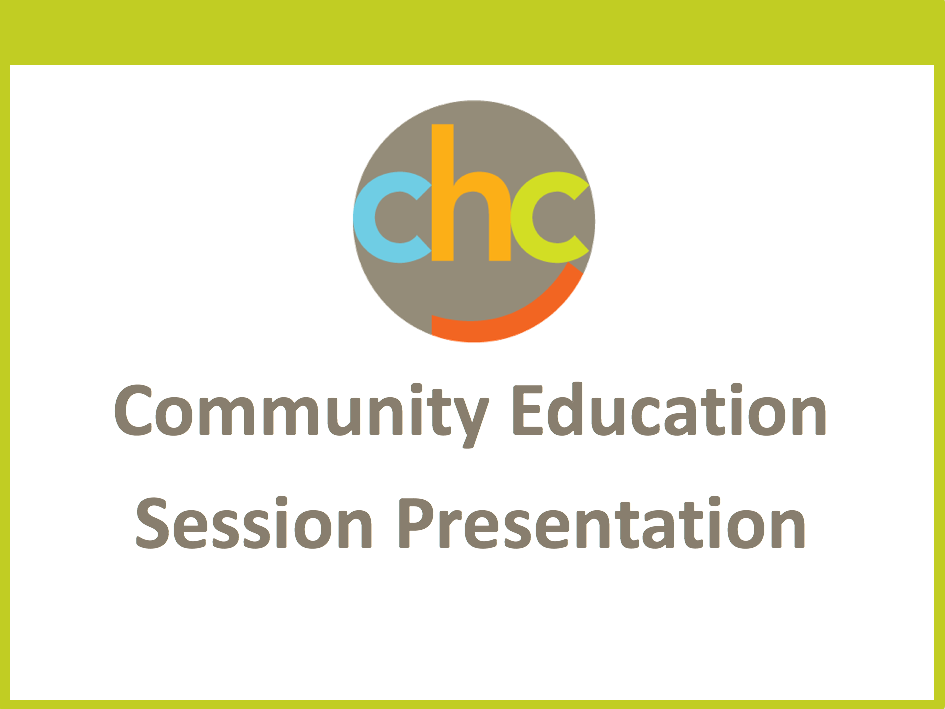Book: How to Raise an Adult
 In her book How to Raise an Adult, Julie Lythcott-Haims draws on research, on conversations with admissions officers, educators, and employers, and on her own insights as a mother and as a student dean to highlight the ways in which overparenting harms children, their stressed-out parents, and society at large. While empathizing with the parental hopes and, especially, fears that lead to overhelping, Lythcott-Haims offers practical alternative strategies that underline the importance of allowing children to make their own mistakes and develop the resilience, resourcefulness, and inner determination necessary for success. Read more »
In her book How to Raise an Adult, Julie Lythcott-Haims draws on research, on conversations with admissions officers, educators, and employers, and on her own insights as a mother and as a student dean to highlight the ways in which overparenting harms children, their stressed-out parents, and society at large. While empathizing with the parental hopes and, especially, fears that lead to overhelping, Lythcott-Haims offers practical alternative strategies that underline the importance of allowing children to make their own mistakes and develop the resilience, resourcefulness, and inner determination necessary for success. Read more »


 How is ADHD treated? Are there treatment options that do not involve medication? This presentation by Dr. Glen Elliott covers the current approaches to treating ADHD, a model for working with a prescribing doctor, and common patterns and problems parents encounter.
How is ADHD treated? Are there treatment options that do not involve medication? This presentation by Dr. Glen Elliott covers the current approaches to treating ADHD, a model for working with a prescribing doctor, and common patterns and problems parents encounter. 
 It is not uncommon for children to be diagnosed with both depression and an anxiety disorder, or depression and general anxiety. It is important to recognize the signs of childhood depression and to distinguish them from normal developmental milestones and behaviors.
It is not uncommon for children to be diagnosed with both depression and an anxiety disorder, or depression and general anxiety. It is important to recognize the signs of childhood depression and to distinguish them from normal developmental milestones and behaviors. 
 Nonprofit
Nonprofit 
 All children need love, encouragement, and support, and for kids with learning disabilities, such positive reinforcement can help ensure that they emerge with a strong sense of self-worth, confidence, and the determination to keep going even when things are tough.
All children need love, encouragement, and support, and for kids with learning disabilities, such positive reinforcement can help ensure that they emerge with a strong sense of self-worth, confidence, and the determination to keep going even when things are tough. 
 It’s not always easy to identify learning disabilities. Because of the wide variations, there is no single symptom or profile that you can look to as proof of a problem. However, some warning signs are more common than others at different ages.
It’s not always easy to identify learning disabilities. Because of the wide variations, there is no single symptom or profile that you can look to as proof of a problem. However, some warning signs are more common than others at different ages. 
 The main predictor of how well your child will do in school and in life is the strength of the relationship he or she has with you, the parent or primary caretaker. This relationship impacts your child’s future mental, physical, social, and emotional health. It is not founded on quality of care or parental love, but on the nonverbal emotional communication between child and parent known as the attachment bond. While it’s easiest to form this secure attachment bond with an infant, it can be formed at any time or at any age.
The main predictor of how well your child will do in school and in life is the strength of the relationship he or she has with you, the parent or primary caretaker. This relationship impacts your child’s future mental, physical, social, and emotional health. It is not founded on quality of care or parental love, but on the nonverbal emotional communication between child and parent known as the attachment bond. While it’s easiest to form this secure attachment bond with an infant, it can be formed at any time or at any age.  If you’ve recently learned that your child has or might have an autism spectrum disorder, you’re probably wondering and worrying about what comes next. No parent is ever prepared to hear that a child is anything other than happy and healthy, and a diagnosis of autism can be particularly frightening. You may be unsure about how to best help your child, or confused by conflicting treatment advice. Or you may have been told that autism is an incurable, lifelong condition, leaving you concerned that nothing you do will make a difference.
If you’ve recently learned that your child has or might have an autism spectrum disorder, you’re probably wondering and worrying about what comes next. No parent is ever prepared to hear that a child is anything other than happy and healthy, and a diagnosis of autism can be particularly frightening. You may be unsure about how to best help your child, or confused by conflicting treatment advice. Or you may have been told that autism is an incurable, lifelong condition, leaving you concerned that nothing you do will make a difference. 

